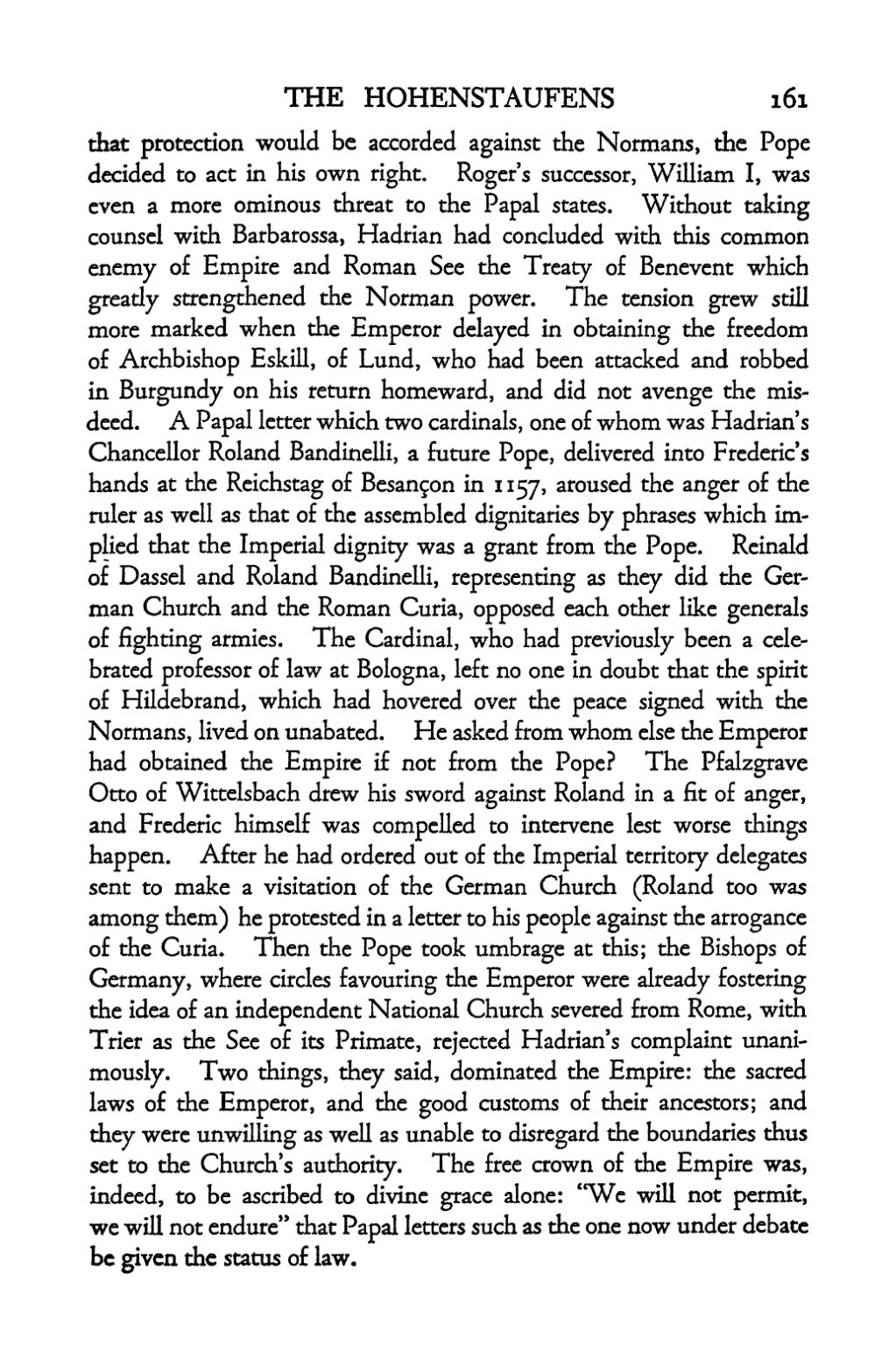HOHENSTAUFENS 161
that protection would be accorded against the Normans, the Pope decided to act in his own right. Roger's successor, William I, was even a more ominous threat to the Papal states. Without taking counsel with Barbarossa, Hadrian had concluded with this common enemy of Empire and Roman See the Treaty of Benevent which greatly strengthened the Norman power. The tension grew still more marked when the Emperor delayed in obtaining the freedom of Archbishop Eskill, of Lund, who had been attacked and robbed in Burgundy on his return homeward, and did not avenge the mis- deed. A Papal letter which two cardinals, one of whom was Hadrian's Chancellor Roland Bandinelli, a future Pope, delivered into Frederic's hands at the Reichstag of Besangon in 1157, aroused the anger of the ruler as well as that of the assembled dignitaries by phrases which im- plied that the Imperial dignity was a grant from the Pope. Reinald of Dassel and Roland Bandinelli, representing as they did the Ger- man Church and the Roman Curia, opposed each other like generals of fighting armies. The Cardinal, who had previously been a cele- brated professor of law at Bologna, left no one in doubt that the spirit of Hildebrand, which had hovered over the peace signed with the Normans, lived on unabated. He asked from whom else the Emperor had obtained the Empire if not from the Pope? The Pfalzgrave Otto of Wittelsbach drew his sword against Roland in a fit of anger, and Frederic himself was compelled to intervene lest worse things happen. After he had ordered out of the Imperial territory delegates sent to make a visitation of the German Church (Roland too was among them) he protested in a letter to his people against the arrogance of the Curia* Then the Pope took umbrage at this; the Bishops of Germany, where circles favouring the Emperor were already fostering the idea of an independent National Church severed from Rome, with Trier as the See of its Primate, rejected Hadrian's complaint unani- mously. Two things, they said, dominated the Empire: the sacred laws of the Emperor, and the good customs of their ancestors; and they were unwilling as well as unable to disregard the boundaries thus set to the Church's authority. The free crown of the Empire was, indeed, to be ascribed to divine grace alone: "We will not permit, we will not endure" that Papal letters such as the one now under debate be given the status of law.
162
